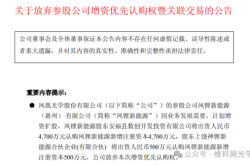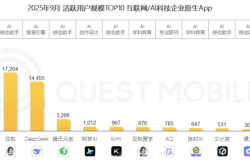Unlocking Simba's ban, saving Kuaishou's life?
![]() 10/12 2024
10/12 2024
![]() 627
627
Written by | Yin Meng
During the days when Simba disappeared, no one doubted that he would reconcile with Kuaishou, especially before Singles' Day, when Kuaishou had to bow to Simba once again. On October 10, the "live streaming ban" mark on Simba's Kuaishou homepage had disappeared. Simba's assistant confirmed that Simba's live streaming function had been unblocked and that he would resume live streaming soon. Over the years, Simba and Kuaishou have been like a middle-aged couple who seem united on the surface but are actually distant at heart. Their closest moments feel like a lifetime ago, but they continue to live together nonetheless.
After the controversy involving Simba and the "Three Sheep," the public witnessed a modern-day palace intrigue filled with dramatic and unpredictable twists, fraught with overt and covert strategies, deception and trust, gossip and business wars. The disappearance of Simba, the silence of Kuaishou, and the series of controversies involving Little Yang have dominated the trending topics for a long time. Undoubtedly, the "Simba-Yang controversy" has exposed the hidden chaos within the live streaming e-commerce industry. The willfulness of anchors and the indulgence of platforms have become issues and challenges that the industry must face together. On the one hand, platforms want to cut ties with top anchors to reduce dependence on a single traffic source and associated operational risks; on the other hand, they cannot escape this huge field of fame and fortune, as platform performance is inseparable from the traffic and sales of top anchors. Since 2024, Simba has been banned by Kuaishou twice and unbanned twice – especially the most recent time, when the reason for the ban remains unclear to both the platform and the anchor.
But perhaps that is no longer important. What matters is that soon after Simba's unban, it will be the annual "Singles' Day": For Kuaishou, which is under performance pressure, face-saving may be less important than substance.
Love-hate relationship: Can Kuaishou survive without Simba?
This is already Simba's "second ban and second unban" this year. Over the years, Simba and Kuaishou have gone from being once-loving partners to resentful yet inseparable foes.
On April 20 this year, Simba mentioned his dispute with anchors Ma Hongtao and Taiyuan Lao Ge during a live stream. He then denounced Kuaishou for indulging emotional anchors, saying, "You rely on collecting 500 million yuan in protection fees from emotional anchors to survive. You have no chivalrous heart, no public morality, and are nothing but a garbage platform."
His actions were quickly detected by the Kuaishou platform, and his live streaming account was promptly banned. However, Simba did not stop denouncing the platform and continued to live stream by constantly changing accounts.
It was only after Simba's team apologized that the matter came to a resolution, and Simba's account was officially unbanned by Kuaishou on May 20 the following day. From the outcome, it is clear that neither Simba's family nor Kuaishou can survive without the other for now.
Upon his return, Simba once again proved his importance to Kuaishou with cold hard cash.
During Kuaishou's "818 E-commerce Festival" this year, Simba live-streamed for a whopping 14 hours, from 10 am to midnight, and ultimately achieved sales of nearly 2.8 billion yuan, over 100 times that of the second-ranked anchor on the list.
At the end of the live stream, Simba declared, "I, Xin Youzhi, have persisted for seven years without decline. My era as Xin Youzhi may be over, but even an outdated Xin Youzhi standing here is still a god in your eyes. If I want to, I am the god of the internet!"
It's hard to imagine how Kuaishou executives felt upon hearing his remarks, but it is undeniable that Kuaishou's e-commerce business still relies heavily on this "top anchor" of Kuaishou.
In January of this year, Simba held the "Simba Selection 5th Anniversary Carnival" concert in Hangzhou. During the event, Simba presented a "report" on the past five years of Simba Selection to online and offline users. Over these five years, Simba Selection has created over 3,000 videos, with over 300 billion views. Simba has conducted 148 live streams, with a single-stream sales record exceeding 3.7 billion yuan. Simba Selection has sold 2.4 billion items, with a total sales volume exceeding 200 billion yuan over five years. Simba also revealed that Simba Selection had another year of countercyclical growth in 2023, with GMV exceeding 50 billion yuan.
Amid repeated controversies, bans, and unbans, Kuaishou's top anchor has not only remained unscathed but has grown stronger.
By September 20, Simba's disciple Dan Dan surpassed 100 million followers on Kuaishou. The following day, Dan Dan launched a special live stream for her "100 Million Followers Battle," ultimately achieving sales of over 1.442 billion yuan. This figure is roughly equivalent to Crazy Little Yang's total sales for the first eight months of 2024 (source: Xindou). Simba Selection has not only broken the curse of "super anchors must split," but also seemingly broken the curse of "super anchors cannot be replicated." Furthermore, during Simba's recent ban, the heat generated by the controversy actually helped him gain more followers.
In Xinbang's estimated top 10 live streaming sales on Kuaishou in 2023, Simba's family accounted for six spots, with the top three being Dan Dan, Simba, and Shi Dapiang, all anchors from Simba Selection Group.
Yet, the more Simba's family bounces back against the odds, the harder it seems for Kuaishou to "take action."
Over the years, while Kuaishou has repeatedly tried to support mid-tier anchors and reduce its reliance on a single top anchor, this transformation process is not easy and can inadvertently affect the platform's performance and market position.
Market analysts point out that despite Simba's bans for violations, the cooperation between the two parties remains close. Simba's family's traffic and sales capabilities are an integral part of Kuaishou's e-commerce business, especially in the fiercely competitive e-commerce live streaming landscape. Simba's presence is a shot in the arm for Kuaishou's e-commerce business. Meanwhile, Kuaishou's platform tone and fan base are undoubtedly the most suitable for Simba, who has accumulated over 100 million followers on the platform since joining in 2016. Due to Simba's presence, Kuaishou's anchor community has become rigid. Coupled with different mechanisms and less traffic than Douyin, Kuaishou cannot confront Simba as aggressively as Douyin confronts Crazy Little Yang. Instead, it can only look for opportunities to discipline Simba: This is Kuaishou's heartache and Simba's trump card.
Thus, under immense growth pressure and fierce competition, even though Kuaishou and Simba have experienced seemingly irreparable conflicts and " Tear your face apart " (severing ties) dramas, the two cannot easily take the final step towards a substantive "divorce." In the adult world, emotions may be set aside, but interests bind them together.
Is Kuaishou's e-commerce business tiring?
It's not that Kuaishou doesn't want to stand on its own two feet, but compared to Simba's booming business empire, Kuaishou's e-commerce business is showing signs of fatigue.
As a rival, Douyin's e-commerce GMV reached 2.2 trillion yuan in 2023, almost double that of Kuaishou. In the second quarter of this year, Douyin's GMV reached 760-770 billion yuan, exceeding Kuaishou's by more than double in the first half of the year, further widening the gap. According to the latest statistics, Douyin's e-commerce GMV grew by 46% year-on-year over the past year, with shelf scenario GMV surging by 86%, demonstrating robust growth potential.
Apart from Douyin, Kuaishou still lags behind top platforms like Taobao and Pinduoduo. In 2023, Kuaishou's GMV reached 1.18 trillion yuan, while Alibaba's GMV was 7.2 trillion yuan and Pinduoduo's was 4.05 trillion yuan.
The decline in GMV growth has a significant impact on Kuaishou, which is increasingly reliant on e-commerce. It affects not only internal advertising, e-commerce buy-ins, and commission growth but also capital market perceptions of Kuaishou's growth potential and true valuation amidst the fiercely competitive e-commerce landscape.
Concurrent with the decline in Kuaishou's GMV growth, its e-commerce business revenue growth has also stagnated. For example, Kuaishou's other service revenue (including e-commerce) decreased slightly from 4.18 billion yuan in the first quarter of 2024 to 4.15 billion yuan in the second quarter. Despite the 618 sales promotion in the second quarter, both GMV growth and e-commerce revenue remained flat compared to the first quarter. In this sense, there was little difference between Kuaishou's performance during the first-half sales promotions and its usual performance. If Simba were still banned, it would undoubtedly be bad news for Kuaishou as it gears up for the upcoming Singles' Day battle.
In reality, while Kuaishou is primarily a short video company, its business model heavily relies on e-commerce, which to some extent underpins its valuation.
At the end of 2022, Cheng Yixiao personally led Kuaishou's e-commerce business as CEO and transferred several main station business leaders to the e-commerce team, demonstrating Kuaishou's commitment and determination to boost its e-commerce business. During the third-quarter earnings call in 2022, Cheng Yixiao stated that the e-commerce business was an essential engine for Kuaishou's future growth and the centerpiece of its entire business ecosystem.
Under Cheng Yixiao's strategy, Kuaishou has intensified its layout in the general shelf field. On the one hand, it has introduced support policies such as the "Chuan Liu Plan" to assist merchants in their development. On the other hand, it has launched the "Explosive Product Plan" for products, providing traffic incentives, platform subsidies, and category service fee reductions to help popular products gain exposure. During major sales promotions, Kuaishou focuses on both content and shelf scenarios, encouraging merchants to conduct in-depth operations across all domains, ultimately driving business growth.
In May 2023, Kuaishou Technology released its first-quarter 2023 financial results, marking the company's first overall profit at the group level. Kuaishou's e-commerce GMV surpassed the trillion-yuan mark for the first time, reaching 1.18 trillion yuan in 2023.
However, soon after, Kuaishou's platform once again hit a growth bottleneck, colloquially known as "lack of staying power." Little did anyone expect that Kuaishou would hit its ceiling just as it entered the "era of profitability.""In the past four years, Kuaishou's e-commerce transaction volume growth rates were 539.10%, 78.41%, 32.52%, and 31.43% respectively, showing a gradual slowdown and signs of fatigue. From 2018 to 2023, Kuaishou's annual e-commerce GMV was 96.6 million, 59.6 billion, 381.2 billion, 680 billion, 901.2 billion, and 1.1844 trillion yuan respectively.
Over the years, Kuaishou has lagged behind platforms like Taobao, JD.com, Douyin, and Pinduoduo in terms of GMV volume, and its growth rate has gradually slowed, falling short of larger platforms like Pinduoduo and Douyin. This has directly impacted market confidence, which is one of the main reasons why Kuaishou's stock price plunged when its second-quarter e-commerce results were announced this year.
Can Kuaishou survive without Simba?
In reality, as a Hong Kong-listed company, Kuaishou's profitability has been a subject of heated debate. The prevailing market view is that Kuaishou's current share price does not fully reflect the company's future potential. As the potential of its various business segments is unleashed, Kuaishou is expected to undergo a revaluation. However, against the backdrop of the e-commerce industry's downturn, Kuaishou has limited time to prove its long-term value.
Zheshang Securities has calculated the monetization rates (revenue generated per unit of sales) of major domestic e-commerce platforms. The monetization rate serves as an indicator of the burden on merchants within each platform and also reflects the platform's own commercialization efficiency. Kuaishou ranks last with a monetization rate of 3.8%. In 2019, Kuaishou's monetization rate was only 0.44%, far below the level of mainstream e-commerce platforms.
This is closely related to Kuaishou's traffic mechanism.
In contrast to Douyin's algorithm-driven traffic mechanism, Kuaishou places greater emphasis on private domains in addition to algorithms. Private domains and social interaction have always been the defining characteristics of Kuaishou's community.
However, this mechanism has also nurtured unique family anchor ecosystems like the "Simba Family," where a few select families control a significant portion of traffic. While private domain traffic is highly valuable, it is difficult for the platform to maintain overall vitality, affecting Kuaishou's commercialization efficiency and profitability. This is the real motivation behind Kuaishou's repeated attempts to "curb the power of feudal lords" and involves complex internal conflicts of interest.
On August 27, the 2024 Kuaishou Photosynthesis Creator Conference was held in Wuxi, Jiangsu Province. Cheng Yixiao, the founder, chairman, and CEO of Kuaishou Technology, once again addressed the issue of traffic distribution, emphasizing the need to strengthen the linkage between public and private domains from a holistic perspective to enable high-quality creators to grow rapidly and operate long-term on Kuaishou.
In fact, Kuaishou has been exploring a "new private domain mechanism" since the beginning of this year. Currently, Kuaishou uses algorithms to identify creators' loyal fans and reach them with creator content in the public domain. Together, the public and private domains reach over 80% of loyal fans. Data shows that after implementing the new large private domain distribution mechanism, Kuaishou's public domain traffic has increased by an average of about 200 million exposures per day.
This is not the first time Kuaishou has intervened in its traffic distribution mechanism, and it likely won't be the last. If the traffic mechanism can be genuinely improved, Kuaishou's ecosystem may regain its "staying power" and "future."
Otherwise, it may be difficult for Kuaishou to expand its user base further, and the growth potential of its advertising business and transaction volume may be limited.
However, future problems must be addressed in the future. For now, with Singles' Day approaching, the pressure on Kuaishou does not prevent Simba from being unbanned once again to fight another battle for the platform.







